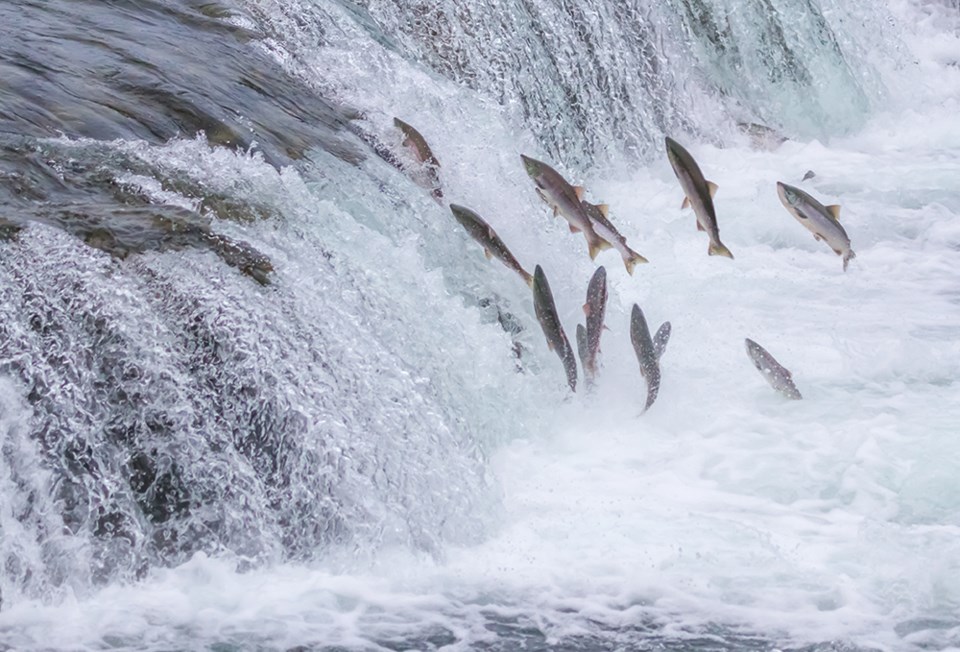While two Sea to Sky groups welcomed new funding for wild salmon conservation, the announcement was also met with concern over the long-term sustainability of such projects in our area.
Federal Fisheries Minister Jonathan Wilkinson and Premier John Horgan announced Friday their respective governments will be shelling out $142.8 million toward a five-year wild salmon restoration program.
The feds are chipping in $100 million of the total amount.
Wilkinson told media gathered for the announcement at Victoria's Fisherman's Wharf that the B.C. Salmon Restoration and Innovation Fund will reward infrastructure and science projects and innovation that lead to the protection and restoration of salmon stocks.
Funds are also available for projects that go toward sustainable fishing.
Dave Brown of the Sea to Sky Fisheries Roundtable told The Chief that any funding announcement supporting salmon habitat is good news.
"There have been so many things that have been discouraging, this is certainly encouraging," he said.
Edith Tobe, of the Squamish River Watershed Society, said members of that organization are happy to see the province and feds collaborate and they look forward to applying for funds to put toward large-scale projects in the Squamish watershed.
"In particular, bringing chinook salmon stocks back into the upper Elaho River by addressing the salmon obstructions and constrictions in this river system," she told The Chief.
For the Elaho River, that barrier is the giant rocks and constrictions within the river channel.
But she said funding is only part of the solution to addressing declining wild salmon stocks along the coast.
The experienced staff at Fisheries and Oceans Canada Resource Restoration Division (RRD) is also necessary, she said.
"To identify the areas where salmon stocks are impacted the most."
In the Sea to Sky, three full-time positions from the department have been lost over the past 10 years, she said. Former prime minister Steven Harper downloaded the responsibility of managing wild salmon stocks onto local non-profits and First Nations, and the Trudeau government has continued it, she said, pointing to the now-reversed 2017 cut of the Resource Restoration Division department in Squamish.
That dissolution was reversed after public uproar.
"However, we are now seeing the government taking a longer-term position to remove the RRD staff as their numbers are not being replaced as staff retires and no additional funding is going to support their department," she said.
"In Squamish alone, the RRD department, consisting of trained fisheries biologists and engineers, are responsible for the ongoing operations and upkeep of intake structures and restored streams along the major rivers and estuary that allow thousands of square metres of off-channel and estuarine habitat that is so important for juvenile salmon such as chinook, coho, chum, pink, and steelhead salmon." While her group is happy to work with the local DFO, non-profits cannot take over the long-term management of restoration sites, she added.
"DFO has the expertise and legal decision-making authority for the conservation and protection of various salmonid stocks. Without a fully-staffed and funded RRD department, we feel that no amount of money the federal government throws to the public and private sector will matter if we don’t have the qualifications and expertise of DFO staff to guide the work."
~With files from Canadian Press



